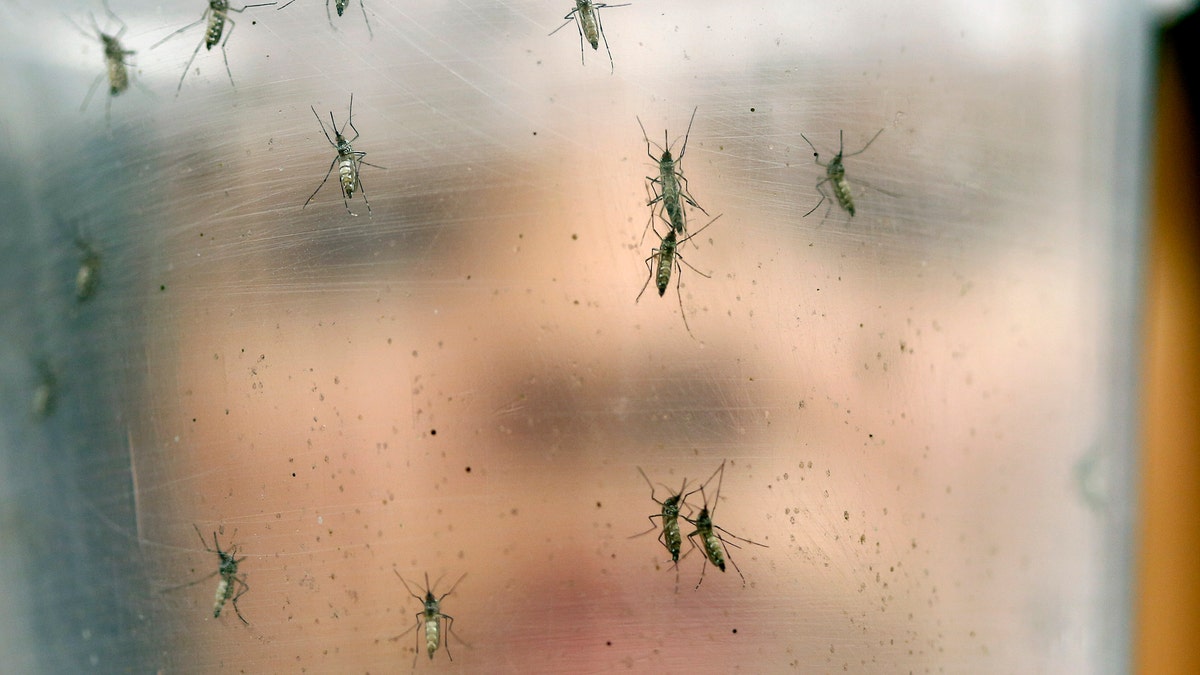
Jan. 18, 2016: In this photo, a researcher holds a container with female Aedes aegypti mosquitoes at the Biomedical Sciences Institute in the Sao Paulo's University in Sau Paulo, Brazil. (AP)
NEW YORK – Health officials have put together a plan to combat Zika that includes a special team of experts that can be dispatched to states if the virus spreads in the U.S.
Officials aren't expecting big outbreaks of the mosquito-borne virus like in Latin America and the Caribbean. But they do think some U.S. cases are likely as the mosquito season heats up.
If local infections occur, states will be able to call on expert teams from the Centers for Disease Control and Prevention to help out, according to the plan issued Tuesday.
The plan also details steps for destroying mosquitoes and breeding sites around the area where an infected person was bitten. That should be done within about 150 yards of the property. It can be expanded to a larger area — perhaps a mile wide — if there's a cluster of infections.
The response work should last for at least 45 days after the last reported illness.
The Zika virus is spread mainly through the bite of a tropical mosquito, Aedes aegypti. It causes only a mild and brief illness, at worst, in most people. But it can cause fetal deaths and severe birth defects in the children of women infected during pregnancy.
Nearly 700 infections have been reported in the United States — all of them in people who had traveled to an outbreak area, or who had sex with someone who did.
Because the Aedes aegypti is also found in Hawaii and a southern swath of the U.S. mainland, health officials say mosquito-spread infections are likely in those places, too. All it would take is a mosquito biting someone who is infected — a returning traveler — and then biting someone else.
It's also possible cases may be spread by another mosquito, Aedes albopictus, in which Zika was recently detected in Mexico.








































